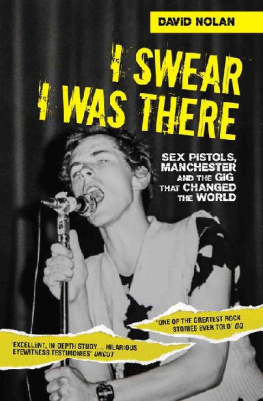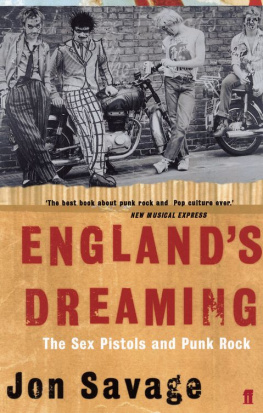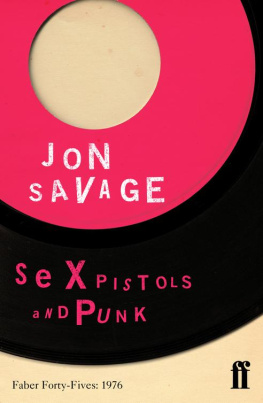Tempo
A Rowman & Littlefield Music Series
on Rock, Pop, and Culture
Series Editor: Scott Calhoun
Tempo: A Rowman & Littlefield Music Series on Rock, Pop, and Culture offers titles that explore rock and popular music through the lens of social and cultural history, revealing the dynamic relationship between musicians, music, and their milieu. Like other major art forms, rock and pop music comment on their cultural, political, and even economic situation, reflecting the technological advances, psychological concerns, religious feelings, and artistic trends of their times. Contributions to the Tempo series are the ideal introduction to major pop and rock artists and genres.
The American Songbook: Music for the Masses, by Ann van der Merwe
Billy Joel: Americas Piano Man, by Joshua S. Duchan
Bob Dylan: American Troubadour, by Donald Brown
Bon Jovi: Americas Ultimate Band, by Margaret Olson
British Invasion: The Crosscurrents of Musical Influence, by Simon Philo
Bruce Springsteen: American Poet and Prophet, by Donald L. Deardorff II
The Clash: The Only Band That Mattered, by Sean Egan
Glam Rock: Music in Sound and Vision, by Simon Philo
The Kinks: A Thoroughly English Phenomenon, by Carey Fleiner
Kris Kristofferson: Country Highwayman, by Mary G. Hurd
Phil Spector: The Sound of the Sixties, by Sean MacLeod
Sex Pistols: The Pride of Punk, by Peter Smith
Patti Smith: America's Punk Rock Rhapsodist, by Eric Wendell
Paul Simon: An American Tune, by Cornel Bonca
Ska: The Rhythm of Liberation, by Heather Augustyn
Sting and The Police: Walking in Their Footsteps, Aaron J. West
U2: Rock n Roll to Change the World, by Timothy D. Neufeld
Warren Zevon: Desperado of Los Angeles, by George Plasketes
Sex Pistols
The Pride of Punk
Peter Smith
ROWMAN & LITTLEFIELD
Lanham Boulder New York London
Published by Rowman & Littlefield
An imprint of The Rowman & Littlefield Publishing Group, Inc.
4501 Forbes Boulevard, Suite 200, Lanham, Maryland 20706
www.rowman.com
10 Thornbury Road, Plymouth PL6 7PP, United Kingdom
16 Carlisle Street, London W1D 3BT, United Kingdom
Copyright 2018 by Peter Smith
All rights reserved. No part of this book may be reproduced in any form or by any electronic or mechanical means, including information storage.
British Library Cataloguing in Publication Information Available
Library of Congress Cataloging-in-Publication Data
Names: Smith, Peter, 1956 author.
Title: Sex Pistols : the pride of punk / Peter Smith.
Description: Lanham : Rowman & Littlefield, [2018] | Series: Tempo : a Rowman & Littlefield music series on rock, pop, and culture | Includes bibliographical references and index.
Identifiers: LCCN 2018026466 (print) | LCCN 2018027734 (ebook) | ISBN 9781442255593 (electronic) | ISBN 9781442255586 (cloth : alk. paper)
Subjects: LCSH: Sex Pistols (Musical group) | Punk rock musicHistory and criticism.
Classification: LCC ML421.S47 (ebook) | LCC ML421.S47 S65 2018 (print) | DDC 782.42166092/2dc23
LC record available at https://lccn.loc.gov/2018026466
 TM The paper used in this publication meets the minimum requirements of American National Standard for Information Sciences Permanence of Paper for Printed Library Materials, ANSI/NISO Z39.48-1992.
TM The paper used in this publication meets the minimum requirements of American National Standard for Information Sciences Permanence of Paper for Printed Library Materials, ANSI/NISO Z39.48-1992.
Printed in the United States of America
Acknowledgments
Many thanks to the following who kindly allowed me to use their material within this book: Bill Gillum for his narrative account of the Pistols gig at Middlesbrough Rock Garden; Peter Dont Care for his narrative account of the Pistols gig at Wolverhampton Lafayette Club; and Tom Graves for allowing me to use When the Sex Pistols Came to Memphis, which is his chapter in Louise Brooks, Frank Zappa, & Other Charmers & Dreamers by Tom Graves. Toms chapter also appears on the www.guerrillamonsterfilms.com site of Mike McCarthy. Many thanks also to my wife, Marie Smith, and my son, David Smith, who spent many hours supporting me in the production of this text.
Series Editors Foreword
After barely holding together for three tumultuous years, the Sex Pistols were no more. Their influence on rock history, however, is disproportionately great for their years of being an active part of it, and that, in and of itself, was, perhaps, punks secret weapon. Small footprint; big impact, all things considered, with plenty of crass, crude, and foul attitude to leave nothing tidy or settled once punk showed up. For author Peter Smith, he found in the Sex Pistols the makings of a revolution of my own from 1975 to 1978, and his contribution to the Tempo series marks the rise and fall of the Sex Pistols amid the cultural upheaval of the times, all of which he bore witness to in real time and which he shares here, writing as a music historian, cultural critic, and autobiographer.
For many fans, their first Sex Pistols concert was one of those nights that changed my life experiences, and Smith is no exception to having felt that way. Smith takes the good, bad, and tragic into account as the Sex Pistols rode, shaped, and defied the cultural currents that flowed from rock to pop to disco and punk. He ends his story as a survivor who appreciates the great irony of how even the Sex Pistolsonce a great threat to Western civilizationhave been accepted with pride into mainstream cultures archive of rebels.
Scott Calhoun
Series Editor
Timeline
World Events and Cultural Items | Sex Pistols Career |
January 22, 1946: Malcolm McLaren is born. |
September 3, 1955: Steve Jones is born. |
January 27, 1956: Elvis Presley releases Heartbreak Hotel, signaling the start of rock n roll. | January 31, 1956: John Lydon (Johnny Rotten) is born. |
July 20, 1956: Paul Cook is born. |
August 27, 1956: Glen Matlock is born. |
November 22, 1963: John F. Kennedy is assassinated in Dallas, Texas. | May 10, 1957: John Simon Ritchie (Sid Vicious) is born. |
January 19, 1971: Charles Manson and his Family are on trial for the murder of Sharon Tate. The Beatles Helter Skelter is played at the trial because Manson believed the lyrics contain messages predicting the murders. | October 1971: Malcolm McLaren opens the shop Let It Rock on 430 Kings Road, London, with girlfriend Vivienne Westwood. |
January 9, 1972: In the United Kingdom, miners go on strike for the first time since 1926.
February 9, 1972: British conservative government under Prime Minister Edward Heath declares a state of emergency. The British government announces three-day work week, introduced to save electricity.
Last US ground troops withdrawn from Vietnam.
UK unemployment rises to one million for the first time since the depression years of the 1930s.
June 16, 1972: David Bowie releases the LP Ziggy Stardust and the Spiders from Mars, which is a big influence on the Pistols and punk rock. Steve Jones attended the final Ziggy concert at Hammersmith Odeon, stealing some of the equipment. |







![Marco Thiede - Human Punk For Real: An Autobiography [English Edition]](/uploads/posts/book/391913/thumbs/marco-thiede-human-punk-for-real-an.jpg)









 TM The paper used in this publication meets the minimum requirements of American National Standard for Information Sciences Permanence of Paper for Printed Library Materials, ANSI/NISO Z39.48-1992.
TM The paper used in this publication meets the minimum requirements of American National Standard for Information Sciences Permanence of Paper for Printed Library Materials, ANSI/NISO Z39.48-1992.